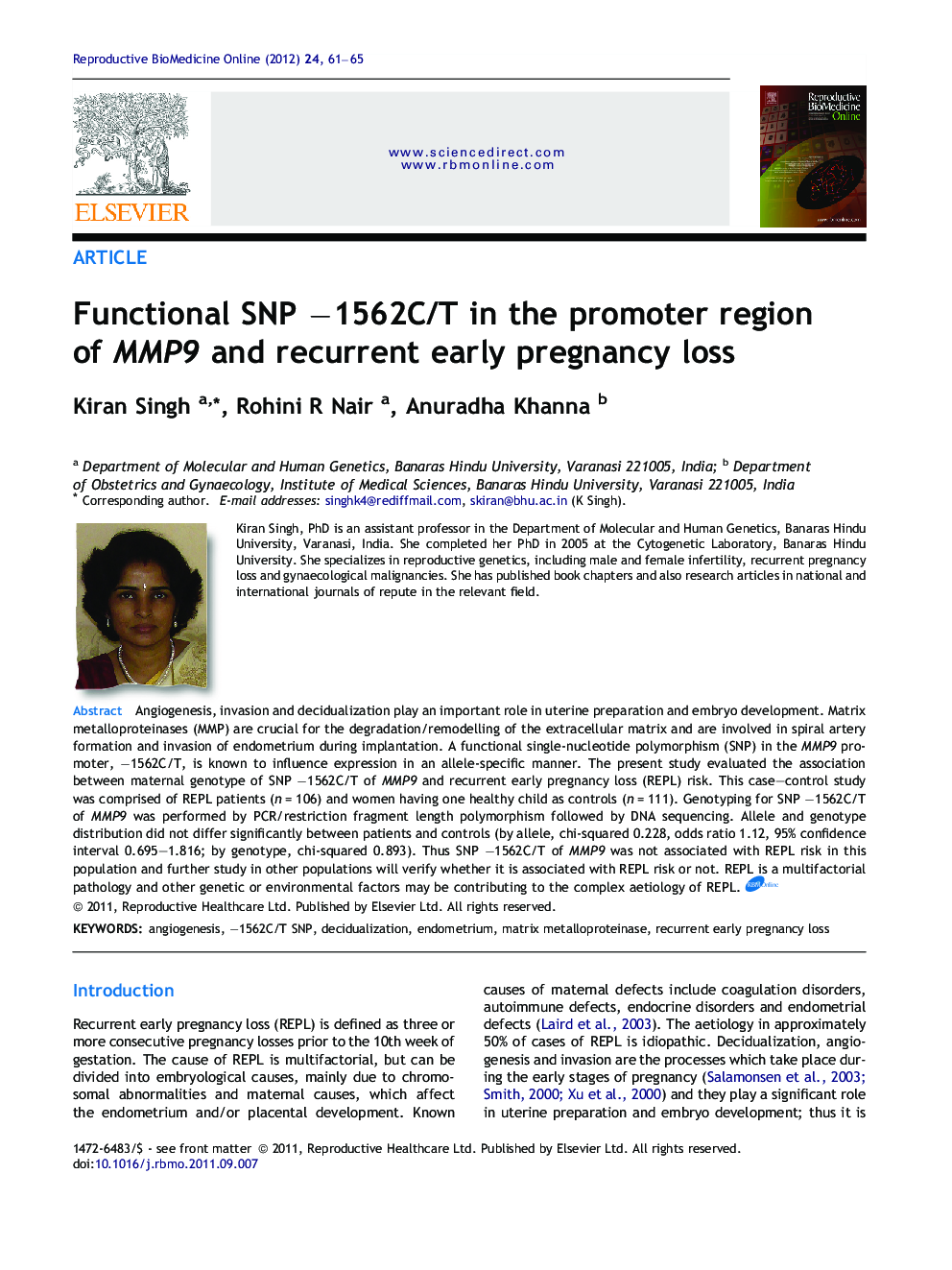| Article ID | Journal | Published Year | Pages | File Type |
|---|---|---|---|---|
| 3970623 | Reproductive BioMedicine Online | 2012 | 5 Pages |
Angiogenesis, invasion and decidualization play an important role in uterine preparation and embryo development. Matrix metalloproteinases (MMP) are crucial for the degradation/remodelling of the extracellular matrix and are involved in spiral artery formation and invasion of endometrium during implantation. A functional single-nucleotide polymorphism (SNP) in the MMP9 promoter, −1562C/T, is known to influence expression in an allele-specific manner. The present study evaluated the association between maternal genotype of SNP −1562C/T of MMP9 and recurrent early pregnancy loss (REPL) risk. This case–control study was comprised of REPL patients (n = 106) and women having one healthy child as controls (n = 111). Genotyping for SNP −1562C/T of MMP9 was performed by PCR/restriction fragment length polymorphism followed by DNA sequencing. Allele and genotype distribution did not differ significantly between patients and controls (by allele, chi-squared 0.228, odds ratio 1.12, 95% confidence interval 0.695–1.816; by genotype, chi-squared 0.893). Thus SNP −1562C/T of MMP9 was not associated with REPL risk in this population and further study in other populations will verify whether it is associated with REPL risk or not. REPL is a multifactorial pathology and other genetic or environmental factors may be contributing to the complex aetiology of REPL.Recurrent early pregnancy loss is a multifactorial disease which has maternal and fetal causes. Angiogenesis is required for proper vascular development which is responsible for absorption, exchange of nutrient and other endocrine functions. The gene for matrix metalloproteinase 9 (MMP9) is expressed during early pregnancy. MMP9 is involved in degradation/remodelling of the extracellular matrix. In the endometrium, MMP9 is concerned with spiral artery formation and in the trophoblast with invasion inside the endometrium for implantation. Insufficient or abnormal gestational angiogenesis may be a consequence of aberrant expression of angiogenesis-related genes and may lead to the abnormal growth of the fetus or pregnancy loss. A functional single-nucleotide polymorphism (SNP) in the promoter of MMP9, at position −1562, is known to enhance expression. In the present study we evaluated the association between maternal genotypes of the SNP −1562C/T of MMP9 and recurrent early pregnancy loss risk. The T allele frequency was comparable between the REPL and control groups (19% versus 18%). The allele and genotype distribution also did not differ significantly between groups (by allele, chi-squared 0.228, odds ratio 1.12, 95% CI 0.695–1.816; by genotype, chi-squared 0.893). Thus the SNP −1562C/T of MMP9 is not associated with REPL risk in the analysed patients. A genotype associated with a decrease in MMP9 expression could be linked with impaired/incomplete angiogenesis/invasion and may result in the REPL phenotype. REPL has a multifactorial pathology and thus both genetic/or environmental factors may be contributing to the complex aetiology of REPL.
